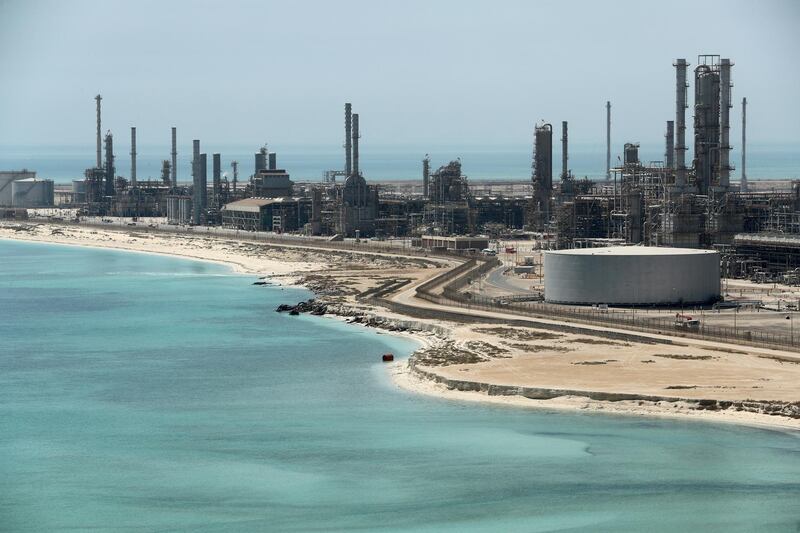Opec+ is likely to extend its production cuts until the end of 2020 as the alliance grapples with surging US supply as well as slowing global demand, analysts suggest.
"We believe that the Opec+ production agreement will likely be extended further to end-2020 once it ends in March 2020," Abu Dhabi Commercial Bank said in a note on Thursday.
"The expected increase in non-Opec supply, soft global demand, still-high global oil inventories, considerable Opec spare capacity and the subdued oil price are likely to be key factors discussed during the Opec+ meeting in early December," the bank said.
Opec+, as the alliance headed by Saudi Arabia and non-member Russia is known, has been cutting back 1.2 million barrels per day since the beginning of January. The pact is expected to hold until March 2020, with the group set to discuss current compliance levels as well as future cuts at their annual meeting in Vienna next month.
Others, such as Energy Aspects said a deeper cut from Opec+ would act as a catalyst, but that it was "too early" for such an eventuality.
On Wednesday, UAE energy minister Suhail Al Mazrouei told reporters in Abu Dhabi that it was "premature" to consider deepening cuts.
"I’m encouraged that the level of conformity is increasing and it is premature to jump to any conclusion yet," he said.
The possibility of Opec+ considering a further extension of cuts comes as the group lowered its forecast for oil demand growth over the next five years.
Opec's overall production is expected to decline by 7 per cent by 2024, the group noted in its annual World Oil Outlook on Tuesday.
Rising production from the US and the changing global narrative on fossil fuels are among the reasons for lower demand growth for crude, with the US-China trade war and a slowing economy also driving down appetite.
Meanwhile, Saudi Aramco on Thursday it signed crude oil sales agreements for 151,000 bpd with five Chinese customers for sale next year. The new agreements would "further solidify" its position as a top supplier to China, Aramco said in a statement.
Brent was up 1 per cent at $62.34 per barrel at 4.14pm UAE time. West Texas Intermediate, which largely tracks North American crude grades, was also up 1 per cent at $56.94 per barrel.







